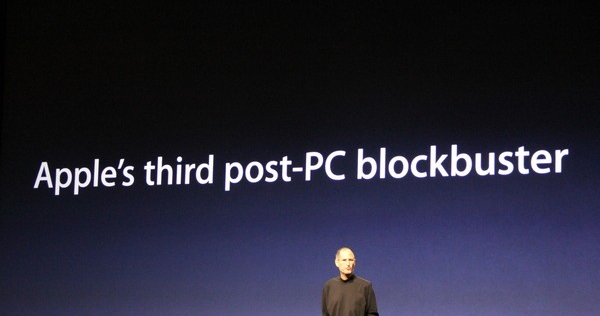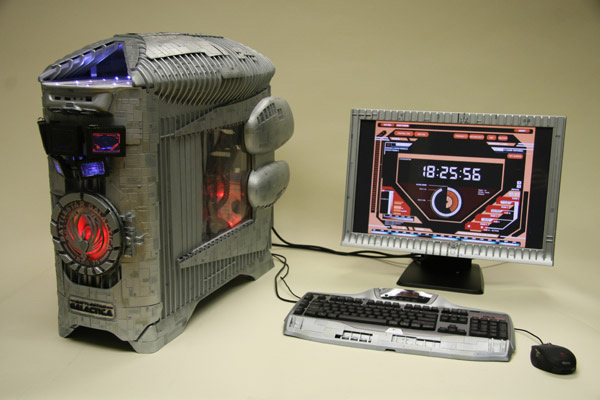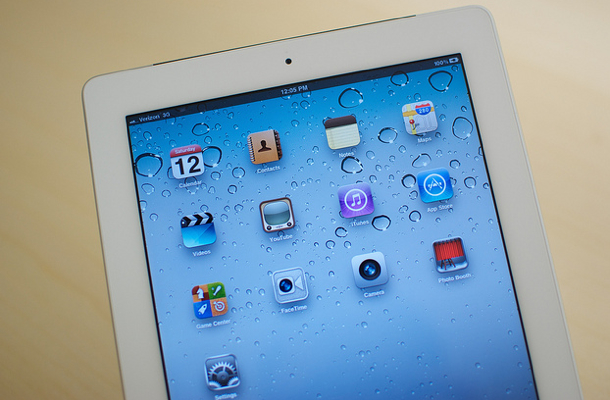No, it isn’t the Apocalypse — and I’m sure the loss of life will be minimal — but the world without PCs seems like a terrifying thing. No more command lines, filesystems, customizations, and tweaks? Can we cope with such drastic changes?
The PC is dying. But don’t take my word for it.
“Desktops PCs are effectively a flatlining commodity,” said Nigel Clifford, former Symbian CEO. He is quick to point out that the future of computing is mobile.
“Complexity kills,” as stated by Ray Ozzie in his final farewell to Microsoft. “Complexity sucks the life out of users, developers and IT. Complexity makes products difficult to plan, build, test and use. Complexity introduces security challenges. Complexity causes administrator frustration.”

And, finally, taking to the stage to reveal the iPad 2, Steve Jobs emphatically declared that the iPad signaled the “post-PC era.” Any questions?
Of course, there are many out there who argue against the idea of a post-PC world — everyone is inclined to their own opinion — but I’m more inclined to trust what the leaders of today’s top tech companies have to say than any tech blogger.
So, if what these leaders say is to be believed, the age of the personal computer is quickly fading, replaced by gizmos that strip away control and provide over-the-top, high-level experiences. It’s a situation where everyone is provided with the same hardware, the same OS, the same amount of control, and the same chunk of plastic and metal that everyone else will be using.
In a way, I can imagine how it could sound dreadfully uninspiring to many.
What We Lose
There are three things in particular that we lose out most with a move to the post-PC era: lack of customization, decreased hardware choice, and threats to open source software. While not all three of these things sound particularly devastating to the everyday consumer, to the hardened geek of yesteryear, it is nothing short of shear terror.
The ability to customize ones computer — to make it their own — is important. From being able to rotate motivational photos on a desktop to digging deep into the command line and tweaking away at settings that most people never knew were there, the ability to take something and make it into your own experience is important, especially in a time where everything is becoming so generic.

Being able to freely add, remove, and replace hardware is a favorite pastime amongst tech geeks. It isn’t only important because it is a good ole’ time, but it is also something that could prolong the life of a personal computer — upgrading RAM, a processor, or a graphics card is relatively cheap, especially when the only other option is purchase a new computer.
And then there is the open source community. Entire operating systems have been built from open source software developers — even our beloved Mac OS X, Apple TV, and iOS stem from the foundations of the open source movement. But in a world of proprietary application marketplaces, open source software is struggling to make an impact. It doesn’t sounds terrible until you realize how many great things have come from open source software projects, which even Apple attributes to on a dedicated page on their website.
What We Gain
Yet for all the things that we lose in a post-PC world, we also gain plenty in other areas.
The overall software experience for the user has improved significantly. While we might be greeted with flashy interfaces, there is no denying that they look better than ever, thanks in part to Apple’s amazing design team.
Hardware also looks and functions much better than ever before. Apple, again, receives plenty of credit for revolutionizing the whole concept of computer hardware — it is now a thing of beauty and luxury. Not only that, but hardware is also becoming smaller than ever before. We now have pencil-thin netbooks; who would have ever thought we would see the day when that happened?

Not only are these devices becoming more practical, they are also becoming easier to use. In order to use a traditional PC, a user must put in a good deal of effort to setup everything to their liking. A user must install software and drivers, and then that person must customize all his or her settings to fit their own needs. It’s a minor hassle for many, but it can be incredibly overwhelming for others. But post-PC devices have the benefit that there is typically little or no setup required; just turn on the device and go.
And one of the most important reasons why post-PC devices are good for users is that it helps minimize the risk of malware/viruses. In order to operate a traditional PC you had to have two things: common sense and the ability to not do stupid things. Unfortunately, not everyone was born with those things. But in a post-PC world, people can afford to be a little more reckless and carefree. Sure, this won’t prevent them from sending money to Africa in hopes of receiving millions of dollars, but the post-PC era should be more secure than ever before, even though it, too, has problems.
But the true question here, I would imagine, is whether or not the pros outweigh the cons.
Post-PC
For the majority of people on this thing called Earth, the post-PC era is a huge step forward. For the rest, it is two-steps back. There is no satisfying everyone with this transition. Inevitably, some users will be more vocal about their dissatisfaction of the closed-down nature of post-PC computing than others, and they have every right to be — every company wants more control, and consumers are readily giving up that control without realizing the potential consequences. But this is what the majority of consumers want, so what is the point in arguing?

And while there is sure to be a significant decrease in the amount of traditional PC devices sold in the next few years, there will still be desktop PCs for the foreseeable future. Mac OS X might not function as a traditional PC in the next few years — the Mac App Store is evidence enough of what the future holds for Mac OS X — but one would assume that Microsoft will always dedicate some (if not most) resources to their personal-computing roots — if not to keep geeky consumers happy, they will do so in order to keep their business-oriented clients around the globe happy.
As to what the post-PC era of computing will bring, I’m not certain. I would hope that it will result in consumers becoming more tech-savvy — that consumers will take more interest in computing and see these types of devices as critical to their day-to-day lives. I also hope that senior citizens will also have an opportunity to familiarize themselves with computing now that devices like the iPad are making it easier than ever to get started. But we will have to wait and see.
But most of all, I hope the post-PC era inspires more innovation in the tech industry while progressively forwarding the open Web, because without these two things, the post-PC era will ultimately become more destructive than anyone could ever imagine.
